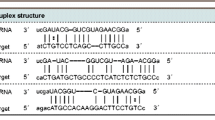Abstract
Objective
To investigate the effect of MUC2 antisense oligodeoxynucleotide (ASODN) on cell proliferation, adhesion and proteolytic enzyme in human gastric carcinoma cell line (SGC7901).
Methods
Phosphorothioate MUC2 ASODN was synthesized and packaged by lipofectin, and then transfected to SGC7901 cells. The expression of MUC2 mRNA and protein after transfection was detected by reverse transcription-polymerase chain reaction (RT-PCR) and immunohistochemical method respectively, and the effect of MUC2 ASODN on cell proliferation, adhesion and proteolytic enzyme was determined by flow cytometry(FCM), MTT method, Rose Bengal and immunohistochemical method.
Results
Compared with the blank control group, ASODN efficiently downregulated the expression of MUC2 mRNA and protein in SGC7901 cells 48h after transfection(P<0.01). Various concentrations of ASODN could significantly inhibit the growth of SGC7901, and the inhibition peaked at the 48th hour after transfection(P<0.05). The apoptosis rate of the experimental group was about 4.38%, and the percentage of S-phase cells rose while G0/G1-phase cells fell because most of them were blocked at S-phase. In addition, cells treated with MUC2 ASODN showed lower adhesion ability with matrix and endothelial cells than control cells in vitro(P<0.01). By immunohistochemical method, the upregulation of E-cadherin proteins and the downregulation of MMP2 and cathepsinD proteins were also observed(P<0.05).
Conclusion
MUC2 ASODN could efficiently inhibit SGC7901 cell proliferation, reduce cell adhesion ability and downregulate the expression levels of proteolytic enzyme in vitro.
Similar content being viewed by others
References
Zhang HK, Zhang QM, Zhao TH, et al. Expression of mucins and E-cadherin in gastric carcinoma and their clinical significance[J]. World J Gastroenterol 2004; 10:3044–3047.
Bresalier RS, Ho SB, Schoeppner HL, et al. Enhanced sialylation of mucin-associated carbohydrate structure in human colon cancer metastasis[J]. Gastroenterology. 1996; 110:1354–1367.
Fridman R, Scott AF, Muller D, et al. The role of cell adhesion and migration in the in vitro invasiveness of mouse adrenal carcinoma cells[J]. Invasion Metastasis 1990; 10: 208–224.
Pereda MP, Hopfner U, Pagotto U, et al. Retinoic acid stimulates meningioma cell adhesion to the extracellular matrix and inhibits invasion[J]. Br J Cancer 1999; 81: 382–386.
Jiang DZ, Wang YH, Lu J. Quantitative determination of adhesion between tumor cells and endothelial cells[J]. Acad J Second Mil Med Univ(in Chin) 1998; 19: 385–388.
Moniaux N, Escande F, Porchet N, et al. Structural organization and classification of the human mucin genes[J]. Front Biosci 2001; 6:1192–1206.
Reis CA, David L, Carvalho F, et al. Immumohisto-chemical study of the expression of MUC6 mucin and co-expression of other secreted mucins (MUC5AC and MUC2) in human gastric carcinomas[J]. J Histochem Cytochem 2000; 48:377–388.
Sonoda H, Yamamoto K, Kushima R, et al Detection of Lymph Node Micrometastasisin Gastric Cancer by MUC2 RT-PCR: Usefulness in pT1 Cases[J]. J Surg Oncol 2004; 88: 63–70.
Leteurtre E, Zerimech F, Piessen G, et al. Relationships between mucinous gastric carcinoma, MUC2 expression and survival[J]. World J Gastroenterol 2006; 12:3324–3331.
Sternberg LR, Byrd JC, Yunker CK, et al. Liver colonization by human colon cancer cells is reduced by antisense inhibition of MUC2 mucin synthesis[J]. Gastroenterology 1999; 116: 363–371.
St Croix B, Sheehan C, Rak JW, et al. E-cadherin-dependent growth suppression is mediated by the cyclin-dependent kinase inhitior P27[J]. J Cell Biol 1998; 142: 557–571.
Setsuo H. Inactivation of the E-cadherin-mediated cell adhesion system in human cancers[J]. Am J Pathol 1998; 153:333–339.
Graziano F, Arduini F, Ruzzo A, et al. Combined analysis of E-cadherin gene (CDH1) promoter hypermethylation and E-cadherin protein expression in patients with gastric cancer: implications for treatment with demethylating drugs[J]. Ann Oncol 2004; 15: 489–492.
Li Nan, Xu CP, Liu WW, et al Overpression of MMP-2/-9 and TIM P-1 gene in human gastric carcinoma-study with immunohistochemistry and in situ hybridization[J]. Chin J Clin Oncol Rehabil(in Chin) 1998, 5: 5–7.
Berchem G, Glondu M, Gleizes M, et al. CathepinD affects multiple tumor progression steps in vivo: proliferation, angiogenesis and apoptosis[J]. Oncogene 2002; 21: 5951–5955.
Aziz S, Pervez S, Khan S, et al. Immunohistochemical cathepsinD expression in breast cancer: correlation with establish pathological parameters and survival[J]. Pathol Res Pract 2001; 197: 551–557.
Author information
Authors and Affiliations
Corresponding author
Additional information
This work was supported by the Science Research Foundation of the Health Bureau of Chongqing Municipality (No.2000-48).
Rights and permissions
About this article
Cite this article
Yang, Yy., Yi, yf., Zhang, Xy. et al. Effect of MUC2 antisense oligodeoxynucleotide on cell proliferation, adhesion, and proteolytic enzyme in human gastric carcinoma in vitro . Chin. J. Cancer Res. 19, 255–262 (2007). https://doi.org/10.1007/s11670-007-0255-6
Received:
Accepted:
Issue Date:
DOI: https://doi.org/10.1007/s11670-007-0255-6




